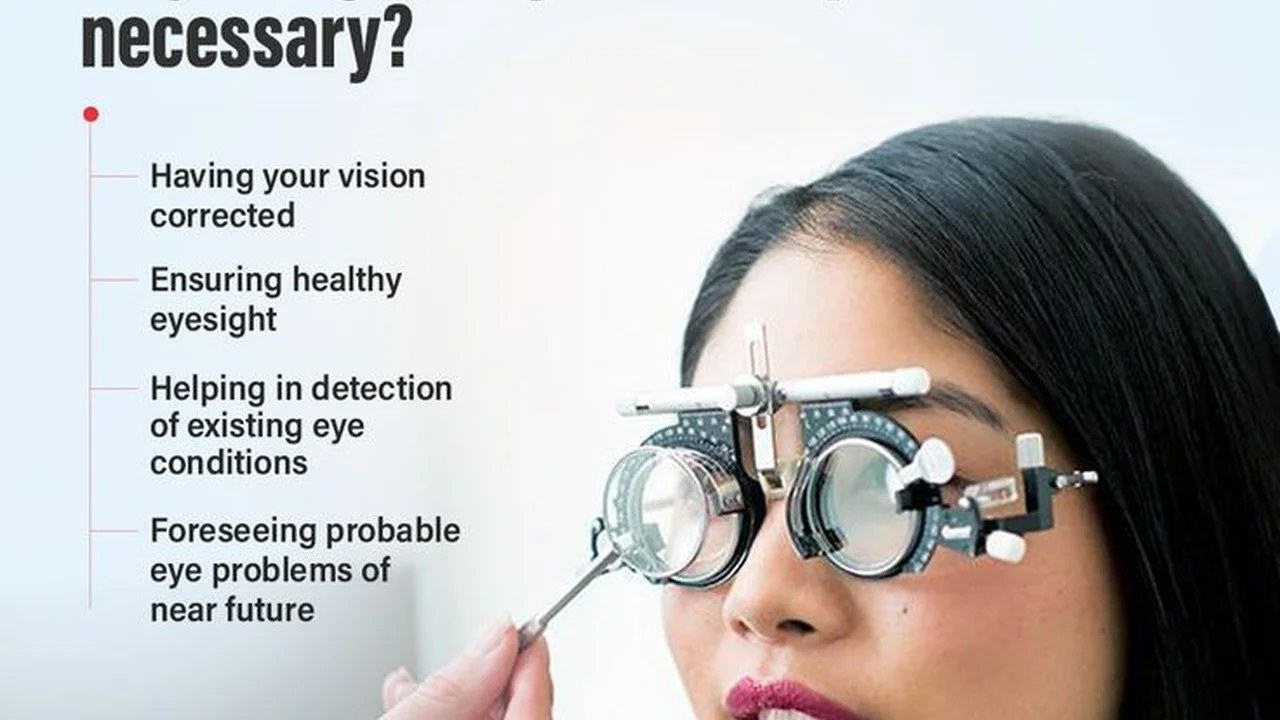The Importance of Regular Checkups: Early Detection is Key
Sample meta description.

Understanding the Vital Role of Routine Health Checkups for Disease Prevention
Hey there! Ever wonder why your doctor keeps nagging you about those annual checkups? It's not just to fill up their appointment book, trust me. Regular checkups are like having a peek under the hood of your body's car. They help catch little problems before they turn into major breakdowns. We’re talking about potentially life-saving early detection here. Think of it this way: a small leak in your roof is way easier to fix than a collapsed ceiling, right?
Early detection of diseases can dramatically improve your chances of successful treatment and a longer, healthier life. Many diseases, like cancer, heart disease, and diabetes, often don't show any obvious symptoms in their early stages. That's where regular screenings and checkups come in. They can identify these silent threats before they cause significant damage.
Benefits of Regular Health Screenings Identifying Risk Factors Early
So, what are the specific benefits? Well, for starters, regular screenings can help identify risk factors for various diseases. Your doctor will check your blood pressure, cholesterol levels, blood sugar, and other vital signs. These measurements can reveal potential problems that you might not even be aware of. For example, high blood pressure often has no symptoms, but it significantly increases your risk of heart disease and stroke. Finding out early allows you to make lifestyle changes or start treatment to manage your blood pressure and reduce your risk.
Another huge benefit is the opportunity to discuss your overall health with your doctor. This is your chance to ask questions, voice concerns, and get personalized advice on how to improve your health. Your doctor can assess your lifestyle habits, such as diet, exercise, and smoking, and provide recommendations for healthy changes. They can also advise you on age-appropriate vaccinations and screenings.
Types of Checkups and Screenings Essential for Early Disease Detection
Okay, so what kind of checkups and screenings are we talking about? It depends on your age, sex, family history, and lifestyle. But here are some common examples:
- Physical Exam: This includes checking your vital signs, listening to your heart and lungs, and examining your body for any abnormalities.
- Blood Tests: These can screen for a variety of conditions, including high cholesterol, diabetes, thyroid problems, and liver or kidney disease.
- Cancer Screenings: These include mammograms for breast cancer, Pap tests for cervical cancer, colonoscopies for colon cancer, and prostate-specific antigen (PSA) tests for prostate cancer.
- Eye Exams: Regular eye exams can detect glaucoma, cataracts, and other eye diseases.
- Dental Exams: These are important for maintaining oral health and detecting early signs of gum disease and oral cancer.
Talk to your doctor about which screenings are right for you based on your individual risk factors.
Making Regular Checkups a Priority Overcoming Barriers to Accessing Healthcare
Alright, so we know checkups are important, but let's be real, life gets busy. It's easy to put them off. But making regular checkups a priority is an investment in your future health. Schedule them in your calendar just like you would any other important appointment. And don't be afraid to ask your doctor's office about reminders or online scheduling options.
One common barrier to accessing healthcare is cost. If you're concerned about the cost of checkups and screenings, talk to your doctor or insurance provider about payment options or financial assistance programs. There are often resources available to help make healthcare more affordable.
Recommended Products to Support Preventative Health and Early Detection
Now, let's talk about some products that can support your preventative health efforts. These aren't replacements for regular checkups, but they can be helpful tools for monitoring your health at home.
Blood Pressure Monitors: A Comparison of Omron and Withings
Omron Evolv Wireless Upper Arm Blood Pressure Monitor: This is a classic and reliable blood pressure monitor. It's easy to use, accurate, and connects to your smartphone via Bluetooth to track your readings over time. It's great for people who want a simple and effective way to monitor their blood pressure at home. You can typically find it for around $70-100.
Usage Scenario: Ideal for daily monitoring of blood pressure, especially for individuals with hypertension or those at risk.
Withings BPM Connect Wi-Fi Smart Blood Pressure Monitor: This monitor is a bit more sleek and modern than the Omron. It also connects to your smartphone via Wi-Fi and provides detailed insights into your blood pressure trends. It's a good option for people who want a more sophisticated and data-driven approach to monitoring their blood pressure. Expect to pay around $100-130.
Usage Scenario: Suited for tech-savvy individuals who appreciate detailed data analysis and seamless integration with other health apps.
Comparison: The Omron is more budget-friendly and straightforward, while the Withings offers more advanced features and a more stylish design. Both are accurate and reliable.
Smartwatches with Health Tracking Features: Apple Watch vs. Fitbit
Apple Watch Series 8 (or newer): The Apple Watch is a powerhouse of health tracking features. It can monitor your heart rate, track your activity levels, detect falls, and even take an ECG. It's a great option for people who are already invested in the Apple ecosystem and want a comprehensive health and fitness tracker. Prices start around $400.
Usage Scenario: Perfect for active individuals who want to track their workouts, monitor their heart health, and stay connected to their iPhone.
Fitbit Sense 2: The Fitbit Sense 2 is another excellent smartwatch with a focus on health and wellness. It can track your heart rate, sleep patterns, stress levels, and even detect changes in your skin temperature. It's a good option for people who are looking for a more affordable and user-friendly alternative to the Apple Watch. It typically costs around $250-300.
Usage Scenario: Ideal for individuals who want to prioritize sleep tracking, stress management, and overall wellness.
Comparison: The Apple Watch offers more features and tighter integration with the Apple ecosystem, while the Fitbit Sense 2 is more affordable and focuses on specific health metrics like sleep and stress.
At-Home Colon Cancer Screening Tests: Cologuard and Fecal Immunochemical Test (FIT)
Cologuard: This is a non-invasive, at-home colon cancer screening test that detects blood and DNA changes in your stool. It's a good option for people who are not comfortable with colonoscopies. However, it's important to note that Cologuard is not as accurate as a colonoscopy and may require follow-up testing. The cost is typically around $600-700, but may be covered by insurance.
Usage Scenario: Suitable for individuals between 45 and 85 years old who are at average risk for colon cancer and prefer a non-invasive screening method.
Fecal Immunochemical Test (FIT): This is another at-home colon cancer screening test that detects blood in your stool. It's less expensive than Cologuard and is also a good option for people who are not comfortable with colonoscopies. However, like Cologuard, it's not as accurate as a colonoscopy. The cost is typically around $20-30.
Usage Scenario: Recommended for individuals at average risk for colon cancer as a simple and cost-effective screening tool.
Comparison: Cologuard is more sensitive than FIT, meaning it's more likely to detect cancer or precancerous polyps. However, it's also more expensive. Talk to your doctor about which test is right for you.
Vitamin D Supplements: The Sunshine Vitamin for Immune Support
Vitamin D3 Supplements (various brands): Vitamin D is crucial for bone health, immune function, and overall well-being. Many people are deficient in Vitamin D, especially during the winter months. Taking a Vitamin D3 supplement can help boost your levels and support your immune system. The cost varies depending on the brand and dosage, but you can typically find a good quality supplement for around $10-20 per bottle.
Usage Scenario: Beneficial for individuals with limited sun exposure, those with darker skin tones, and older adults.
Empowering Yourself Through Proactive Healthcare
So, there you have it! Regular checkups are a cornerstone of preventative healthcare. By making them a priority and utilizing available resources and products, you can take control of your health and increase your chances of living a long and healthy life. Remember, early detection is key!
:max_bytes(150000):strip_icc()/277019-baked-pork-chops-with-cream-of-mushroom-soup-DDMFS-beauty-4x3-BG-7505-5762b731cf30447d9cbbbbbf387beafa.jpg)






